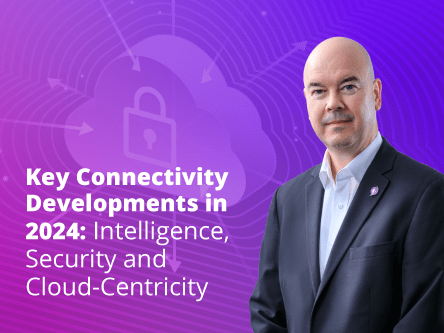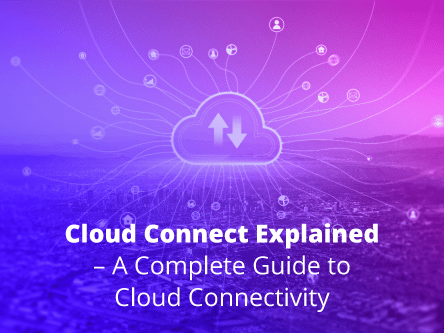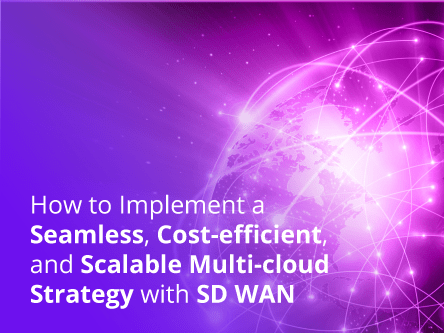Exploring 3 Safe Ways to Connect to the Cloud
As the world moves towards digitalisation, businesses are increasingly dependent on cloud storage and application-based services. This trend exposes them to numerous cybersecurity threats, resulting in a rise in data breaches. According to IBM’s Cost of a Data Breach Report 2022, more than 45 percent of data breaches are cloud-based, with the average total cost of a breach reaching US$4.35 million. This highlights the importance of safeguarding business-critical applications and data in the cloud.
1. Virtual Private Network (VPN)
What is a VPN?
A Virtual Private Network (VPN) creates a secure and encrypted connection between your device and the cloud service that you wish to access. It is a popular solution that ensures privacy and protects information while accessing information over public internet-connected devices by masking IP addresses, prohibiting third-party actors from accessing your business-critical data and making sure it remains safe.
How to Connect to the Cloud Using VPN
Once the connection to a VPN server is established, your device’s traffic will be routed through a secure VPN server instead of your ISP server. The VPN server acts as an intermediary between your device and the cloud, providing enhanced security and privacy by obscuring your data’s IP address from third parties while enabling you to access your cloud services as you normally would.
Benefits of VPN:
- Provides secure remote access to cloud resources and enables employees to connect from anywhere with an internet connection, which is advantageous for global, distributed teams.
- Cost-effective solution for secure cloud connectivity, especially compared to MPLS IP VPN or dedicated leased lines. Many VPN solutions are available at relatively low costs, with some cloud service providers offering built-in VPN capabilities as part of their offerings.
- Highly flexible and scalable as it is relatively easy to add or remove users, scale up or down the bandwidth, and connect to various cloud resources.
Drawbacks of VPN:
- Reliance on the public internet for connectivity introduces a dependency on the quality and reliability of the internet connection. If the internet connection is unstable, the VPN connection and access to cloud resources can be disrupted.
- May introduce high latency when using encryption and tunneling protocols, which can result in subpar performance of real-time applications such as video conferencing, where low latency is crucial.
- Setting up and managing a VPN infrastructure, on-premise or in the cloud, including managing security policies and user access controls can be complex without dedicated IT expertise.
2. MPLS IP VPN
What is MPLS IP VPN?
MPLS IP VPN utilises Multi-protocol Label Switching (MPLS) technology to establish a dedicated and secure private network path over a shared network infrastructure. It is an ideal choice for enterprises using a combination of public and private clouds. This technology is specifically designed to provide security against unauthorised intrusion, DDoS attacks, and other common cyber threats prevalent in public internet connections, enhancing safety by routing all data directly through a mesh to enterprise sites and other cloud-based applications.
How to Connect to the Cloud Using MPLS IP VPN
MPLS IP VPN uses Layer 2 or Layer 3 Ethernet circuits to connect customer sites or data centres through an MPLS fabric, enabling seamless connectivity to the cloud. It efficiently uses labels to route and prioritise traffic within the network, ensuring secure and reliable communication between multiple customer sites or data centres while providing a direct path to cloud services.
Benefits of MPLS IP VPN:
- Enhanced security by isolating all data from the public internet, ensuring that data transmitted between the organisation and the cloud remains protected from external threats.
- Prioritisation of network traffic streams based on Quality of Service (QoS) ensures that critical applications or services accessing the cloud receive the necessary bandwidth and priority, resulting in better performance and user experience.
- Provides a reliable and predictable connection to the cloud by leveraging the service provider’s network infrastructure, which is designed for high availability and redundancy.
- All the customer sites can share a single Cloud connection.
Drawbacks of MPLS IP VPN:
- Limited flexibility and scalability for rapidly changing cloud environments, as it is designed to cater to dedicated network requirements at a fixed number of locations. Adjusting bandwidth or adding new locations to the network may require additional time.
- Could be more costly compared to other connectivity options, particularly for organisations with a large geographical footprint or extensive bandwidth requirements.
3. Cloud Connect
What is Cloud Connect?
Cloud Connect is a dedicated Ethernet solution that provides fast, reliable, and secure connectivity to global cloud service providers. It allows businesses to easily scale up their bandwidth requirements as they grow, without the need for additional IT infrastructure investments to access the cloud. With dedicated and secure private gateways, users can effortlessly establish direct connections with single or multiple cloud providers, facilitating the storage and management of data in both on-premise and public clouds.
Securing a Direct Connection via Cloud Connect
Cloud Connect provides seamless cloud connectivity across globally distributed data centres through dedicated Layer 2 MEF-certified Ethernet services. This offers enhanced efficiency, direct connectivity, control, and performance. Furthermore, you have the option to adopt a point-to-point, multi-point or hybrid cloud connectivity.
Benefits of Cloud Connect:
- Dedicated and private connection between your organisation’s network and cloud service provider bypasses the unreliable public internet, reducing the exposure to potential security threats.
- Direct connectivity to cloud service providers enables organisations to achieve more consistent and reliable network performance, which is critical for applications that require low latency or high bandwidth.
- Provides flexibility and scalability to increase or decrease bandwidth requirements, or connect to multiple cloud regions or services based on specific needs, on-demand through an easy-to-use software-defined platform.
Drawbacks of Cloud Connect:
- Cloud Connect may be a costlier solution compared to VPNs, as there may be additional costs incurred for the dedicated connection, or data transfer costs.
- Dependency on service providers’ network uptime, maintenance, and support to ensure seamless connectivity to cloud resources.
Conclusion: Selecting the Right Cloud Connectivity Option
The choice between VPN, MPLS IP VPN, or Cloud Connect ultimately depends on your specific needs and requirements. For enterprises seeking a comprehensive solution, Cloud Connect and MPLS IP VPN can be ideal choices as they offer enhanced security, performance, scalability, flexibility, and guaranteed QoS. On the other hand, VPN is more suitable for small businesses looking for a secure cloud connection over the public internet, considering its ability to provide both security and cost-effectiveness.
Get in touch today to learn how Epsilon’s Cloud Connect can provide your organisation with a direct, reliable, and secure cloud connection to a wide ecosystem of leading and niche cloud service providers.







